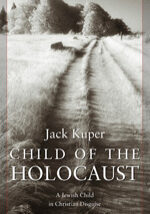In 701 B.C. the Assyrian empire was in its ascendancy. It had already vanquished the kingdom of Israel to the north including the capital at Samaria. It then prepared an assault on Judah and its capital at Jerusalem.
But in one of those significant events that changes the course of world history, Assyria was repelled. Jerusalem was saved until 586 B.C. when the Babylonians sacked the city, forcing its leadership class into exile.
Henry Aubin, in a major feat of scholarship, determines that Jerusalem was aided by a Kushite army from Africa which had marched northeast from the Nile valley. While the Bible attributes the Assyrian retreat to an angel and secular commentators cite pestilence, Aubin, in a meticulously documented work, demonstrates that an alliance with the African nation of Kush bolstered Jerusalem’s defences.
Kush, also known as Nubia, was located in what is now southern Egypt and northern Sudan. A monarchy that existed for more than 1000 years, from 900 B.C. to A.D. 350, Kushites held sway over Egypt from 712 B.C. to about 660 B.C. Of Egypt’s 31 dynasties, this, the 25th Dynasty, is the only one that all scholars agree, was black.
The commander of the Kushite expeditionary force was Taharqa (or as the Bible calls him Tirhakah). This Kushite prince, who had his own interests in halting Assyrian expansion, likely caught the aggressors by surprise as they prepared their siege of Jerusalem.
Aubin offers a thrilling military history and a stirring political analysis of the ancient world. He also sees the event as influential over the centuries.
The Kushite rescue of the Hebrew kingdom of Judah enabled the fragile, war-ravaged state to endure, to nurse itself back to economic and demographic health, and allowed the Hebrew religion, Yahwism, to evolve within the next several centuries into Judaism. Thus emerged the monotheistic trunk supporting Christianity and Islam.

“Remarkable . . . Gripping . . . a child’s struggle for survivalâ€
The Globe and Mail
“Astounding . . . a work that amounts to a letter from inside a nightmare . . . A miraculous example of the human spirit at its most resilient.â€
Toronto Star
“Artfully rendered . . . testifying to the spirit of a man who emerged whole from a childhood of shame and despair.â€
Saturday Review
“He reveals the terror, the mental and physical sufferings, and the hope and courage of a youngster’s desperate will to survive.â€
Seattle Times

Key Porter, Reissue, Canada 2007
Mexico Diana/Planeta 2009
Dozens of translations/editions
Child of the Holocaust
“Marvellous . . . The charm and fascination of the book lie in the dual role of survival and growing up.â€
London Times Literary Supplement
Jack Kuper was only nine years old when he came home to find everyone in his family gone. The night before, Germans had come to his village in rural Poland and taken away all the Jews. Now alone in the world, he has to change his name, forget his language and abandon his religion in order to survive. Jack wanders through Nazi occupied Poland for four years, with no place to hide and no one to trust.
The harrowing true story of how he survives has been hailed as a classic, as powerful as The Diary of Anne Frank. It has been in print in various editions in English and a dozen other languages since 1966. For a new edition released this year in Canada, Jack Kuper revisited the manuscript for the first time since he wrote it more than 40 years ago. He was able to include the correct names of those who helped him and to add new material.
After the war, Jack Kuper escaped Poland and immigrated to Canada at the age of 15. He spent much of his career in advertising, producing and directing award-winning TV commercials. As a filmmaker he has written and directed several shorts. His film RUN! was honoured at the Venice Film Festival. He is also the author of After the Smoke Cleared, the sequel to this book. He now lives in Toronto with his wife Terrye and speaks often to groups about his experiences during the Holocaust.
Click here for a moving tribute to Dorothy McCarthy who mentored Jack Kuper when he was young and new to Canada:
http://tinyurl.com/4koumjp